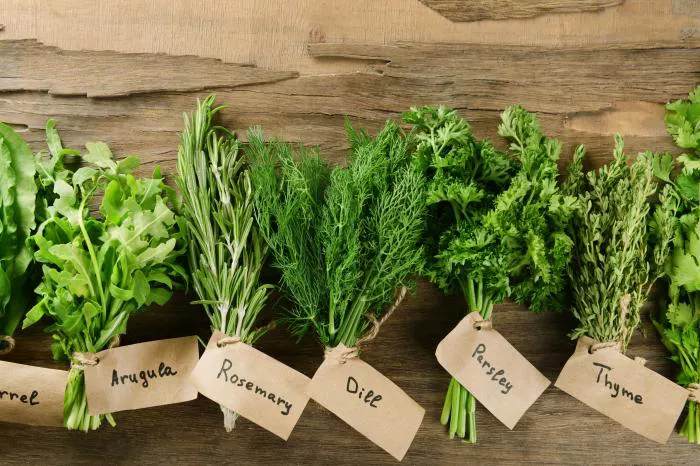Breastfeeding is a vital part of parenting for many mothers. However, there are situations where a mother may want to reduce or stop her milk production. This article explores the herbs that can help with stopping milk production, along with their effects, benefits, and potential risks.
Understanding Milk Production
Milk production in breastfeeding mothers is regulated by hormones. When a baby suckles, it stimulates the release of prolactin and oxytocin. Prolactin promotes milk production, while oxytocin helps with milk ejection. As long as a mother breastfeeds regularly, her body continues to produce milk. However, various reasons may lead a mother to stop breastfeeding, such as health issues, personal choices, or difficulties in nursing.
Why Stop Milk Production?
There are several reasons a mother may wish to stop milk production. Some common reasons include:
Health Concerns: Certain medical conditions may require a mother to stop breastfeeding.
Personal Choice: Some mothers decide that breastfeeding is not for them and wish to transition to formula or other feeding methods.
Difficulty Nursing: Some mothers may struggle with latching or other breastfeeding issues, making it challenging to continue.
Returning to Work: A mother may need to return to work and find it difficult to maintain breastfeeding.
Understanding these reasons is crucial for mothers considering herbs to stop milk production.
Herbs Known to Reduce Milk Supply
Several herbs are traditionally believed to help reduce milk production. However, it’s essential to approach these herbs with caution. Here are some of the most commonly mentioned herbs:
1. Sage
Sage is one of the most well-known herbs for reducing milk supply. It contains compounds that can inhibit the production of prolactin. Sage tea is often recommended for mothers looking to reduce their milk production.
How to Use Sage:
Sage Tea: Brew a strong tea with dried sage leaves. Drink it several times a day.
Sage in Cooking: Incorporate sage into meals. Use fresh or dried sage leaves in soups, stews, or roasted dishes.
2. Peppermint
Peppermint is another herb often mentioned in discussions about reducing milk supply. The menthol in peppermint can impact hormonal balance and may help decrease milk production.
How to Use Peppermint:
Peppermint Tea: Brew peppermint leaves or use tea bags to make a refreshing beverage.
Peppermint Oil: Dilute peppermint essential oil with a carrier oil and apply it to the chest area.
3. Parsley
Parsley is a common kitchen herb that has been used traditionally to reduce milk supply. It is believed to have diuretic properties, which can help lower breast milk production.
How to Use Parsley:
Parsley Tea: Steep fresh or dried parsley leaves in hot water and drink it.
In Meals: Add fresh parsley to salads, soups, or other dishes for flavor and benefits.
4. Thyme
Thyme is another herb that some mothers use to reduce milk production. Like sage, thyme may affect hormonal levels related to lactation.
How to Use Thyme:
Thyme Tea: Prepare a strong tea using dried thyme leaves.
Culinary Uses: Use thyme in cooking to enjoy its flavor and potential benefits.
Risks and Considerations
While these herbs are often used for reducing milk production, it is crucial to approach them with caution. Here are some points to consider:
1. Consult a Healthcare Professional
Before using any herbs, it is vital to talk to a healthcare provider. They can provide guidance based on individual health needs and circumstances.
2. Individual Responses Vary
Not all mothers will have the same experience with these herbs. Some may find them effective, while others may not notice any difference.
3. Potential Side Effects
Herbs can cause side effects. For example, excessive use of sage may lead to nausea or dizziness. It is essential to monitor how your body responds.
4. Impact on Baby
If a mother is still breastfeeding, any herbs she consumes can affect her baby. It is essential to be aware of any changes in the baby’s behavior or health.
Natural Alternatives to Reduce Milk Supply
In addition to herbs, several natural methods may help reduce milk production. These methods can be safer and easier to implement.
1. Gradual Weaning
Gradually reducing breastfeeding sessions can help decrease milk supply naturally. This approach allows the body to adjust slowly.
2. Cold Compresses
Applying cold compresses to the breasts can help relieve discomfort and signal the body to reduce milk production. This method can also help with engorgement.
3. Avoid Stimulation
Minimizing breast stimulation is essential. Avoiding situations that encourage letdown can help signal the body to produce less milk.
4. Supportive Bra
Wearing a supportive bra can provide comfort and help reduce milk production. A well-fitted bra can also prevent excessive movement and discomfort.
See also: What Is The Best Diet To Lose Belly Fat While Breastfeeding
Final Thoughts
Reducing or stopping milk production is a personal decision that requires careful consideration. Herbs like sage, peppermint, parsley, and thyme can be helpful, but they should be used with caution. Always consult a healthcare professional before starting any herbal remedies.
Understanding the reasons for wanting to stop milk production is essential. Each mother’s journey is unique, and finding the right approach can make a significant difference.
Ultimately, whether through herbs, natural methods, or gradual weaning, it is crucial to prioritize the health and well-being of both mother and baby. With the right information and support, mothers can navigate this process effectively and confidently.
Related topics:


